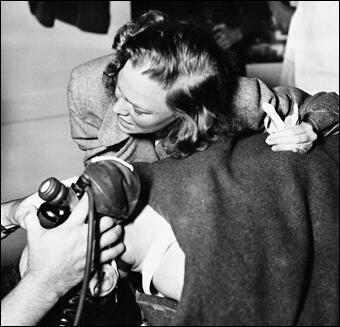On this day on 2nd May
On this day in 1536 Anne Boleyn is arrested and imprisoned on charges of adultery, incest, treason and witchcraft. Thomas Cromwell took this opportunity to destroy her brother, George Boleyn. He had always been close to his sister and in the circumstances it was not difficult to suggest to Henry that an incestuous relationship had existed. George was arrested on 2nd May, 1536, and taken to the Tower of London. David Loades has argued: "Both self control and a sense of proportion seem to have been completely abandoned, and for the time being Henry would believe any evil that he was told, however farfetched."
On 12th May, Thomas Howard, the Duke of Norfolk, as High Steward of England, presided over the trial of Henry Norris, Francis Weston, William Brereton and Mark Smeaton at Westminster Hall. Except for Smeaton they all pleaded not guilty to all charges. Thomas Cromwell made sure that a reliable jury was empanelled, consisting almost entirely of known enemies of the Boleyns. "These were not difficult to find, and they were all substantial men, with much to gain or lose by their behaviour in such a conspicuous theatre".
Few details survive of the proceedings. Witnesses were called and several spoke of Anne Boleyn's alleged sexual activity. One witness said that there was "never such a whore in the realm". The evidence for the prosecution was very weak, but "Cromwell managed to contrive a case based on Mark Smeaton's questionable confession, a great deal of circumstantial evidence, and some very salacious details about what Anne had allegedly got up to with her brother." At the end of the trial the jury returned a verdict of guilty, and the four men were condemned by Lord Chancellor Thomas Audley to be drawn, hanged, castrated and quartered. Eustace Chapuys claimed that Brereton was "condemned on a presumption, not by proof or valid confession, and without any witnesses."
George and Anne Boleyn were tried two days later in the Great Hall of the Tower. In Anne's case the verdict already pronounced against her accomplices made the outcome inevitable. She was charged, not only with a whole list of adulterous relationships going back to the autumn of 1533, but also with poisoning Catherine of Aragon, "afflicting Henry with actual bodily harm, and conspiring his death."
George Boleyn was charged with having sexual relations with his sister at Westminster on 5th November 1535. However, records show she was with Henry on that day in Windsor Castle. George Boleyn was also accused of being the father of the deformed child born in late January or early February, 1536. This was a serious matter because in Tudor times Christians believed that a deformed child was God's way of punishing parents for committing serious sins. Henry VIII feared that people might think that the Pope Clement VII was right when he claimed that God was angry because Henry had divorced Catherine and married Anne.
Eustace Chapuys reported to King Charles V that Anne Boleyn "was principally charged with... having cohabited with her brother and other accomplices; that there was a promise between her and Norris to marry after the King's death, which it thus appeared they hoped for... and that she had poisoned Catherine and intrigued to do the same to Mary... These things, she totally denied, and gave a plausible answer to each." She admitted to giving presents to Francis Weston but this was not an unusual gesture on her part. It is claimed that Thomas Cranmer told Alexander Ales that he was convinced that Anne Boleyn was innocent of all charges.
George and Anne Boleyn were both found guilty of all charges. Thomas Howard, the Duke of Norfolk, who presided over the trial left it to the King to decide whether Anne should be beheaded or burned alive. Between sentence and execution, neither admitted guilt. Anne declared herself ready to die because she had unwittingly incurred the King's displeasure, but grieved, as Eustace Chapuys reported, for the innocent men who were also to die on her account."
On 17th May, 1536, George Boleyn and the other four condemned men were executed on Tower Hill, their sentences commuted from being hung, drawn and quartered. Boleyn exercised the condemned man's privilege of addressing the large crowd which always gathered for public executions. "Masters all, I am come hither not to preach and make a sermon but to die, as the law hath found me, and to the law I submit me."
On 18th May, Archbishop Thomas Cranmer sat as judge at Lambeth Palace to try Henry's petition for divorce against Anne Boleyn. Cranmer had the problem of finding a reason for reversing his decision of three years earlier that Henry's marriage to Anne had been valid. There were two possible grounds for invalidating it: the existence of a precontract between Anne and Henry Percy, and the fact that Anne's sister, Mary Boleyn, had been Henry's mistress. Percy denied that there had been a pre-contract. Henry VIII did not want the public to know he had an affair with Mary, so Cranmer tried the case in private and granted the divorce without publicly announcing the reason for his decision. According to the imperial ambassador, Eustace Chapuys, the grounds for the annulment included the king's previous relationship with Mary Boleyn. However, this information has never been confirmed.
Anne Boleyn went to the scaffold at Tower Green on 19th May, 1536. The Lieutenant of the Tower reported her as alternately weeping and laughing. The Lieutenant assured her she would feel no pain, and she accepted his assurance. "I have a little neck," she said, and putting her hand round it, she shrieked with laughter. The "hangman of Calais" had been brought from France at a cost of £24 since he was a expert with a sword. This was a favour to the victim since a sword was usually more efficient than "an axe that could sometimes mean a hideously long-drawn-out affair."
Anne Boleyn's last words were: "Good Christian people, I am come hither to die, for according to the law I am judged to die, and therefore I will speak nothing against it. I am come hither to accuse no man, nor to speak anything of that, whereof I am accused and condemned to die, but I pray God save the King, and send him long to reign over you, for a gentler nor a more merciful prince was there never and to me he was ever a good, a gentle, and sovereign Lord.... And thus I take my leave of the world and of you all, and I heartily desire you all to pray for me."
When her mother was executed Elizabeth was only three years old. Patrick Collinson has argued: "Elizabeth can have had few memories of her mother... There is no profit in speculating about the psychological damage which Anne's terrible end might have had on her daughter, although many of Elizabeth's biographers have found significance in the fact that she never in adult life invoked or otherwise referred to her mother."
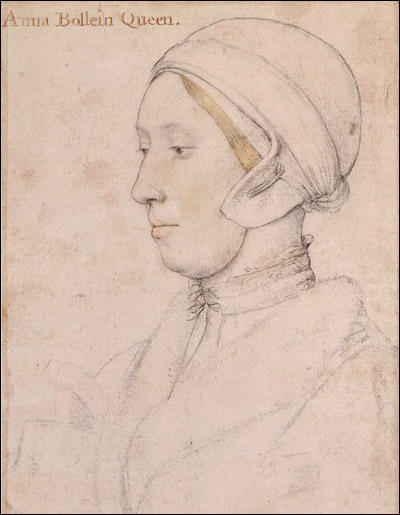
On this day on 1551 William Camden was born in London. Educated at Christ's Hospital, St. Paul's School, and Oxford University, he began working at Westminster School in 1575 and was appointed headmaster in 1593.
In his free time Camden travelled the country and eventually published Britannia, a geographical survey of England, Scotland and Ireland. This was followed by Annales Britannia (1615), a description of the reign of Elizabeth I.
Camden also wrote an account of the trial of the conspirators in the Gunpowder Plot and a list of epitaphs in Westminster Abbey.
William Camden died 9th November 1623.
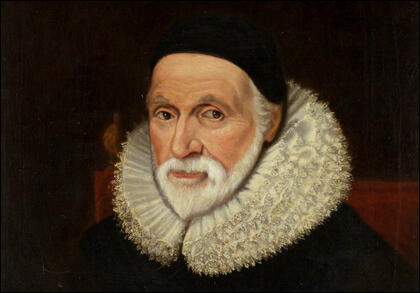
On this day in 1850 William Ewart Gladstone writes about encounters with prostitutes. Throughout his career Gladstone had problems dealing with a strong sex-drive. He wrote in his diary about the "temptation and guilt... of reading pornography". On 13th May 1848 he described buying an Italian book: "I began to read it, and found in some parts of it impure passages, concealed beneath the veil of a quite foreign idiom: so I drank the poison, sinfully, because understanding was thus hidden by a cloud - I have stained my memory and my soul - which may it please God to cleanse for me, as I have need. Have set down a black mark against this day."
Five days later he was reading the book again: "It seems to me necessary to shut up these volumes for good, having falling yet again among impurities: how strong and subtle are the evils of that age, and of this. I read sinfully, although with disgust, under the pretext of hunting soberly for what was innocent; but - criminal that I am - with a prurient curiosity against all the rules of pious prudence, and inflaming the war between the better qualities of man and the worse."
On certain days in his diaries he drew a whip. It has been suggested that "Gladstone had... adopted a policy of scourging or self-flagellation. Exactly how he applied it, and to which part of his anatomy, bearing in mind that the most obvious part must surely have been excluded by the fact that the discipline was self-administered, or exactly what form the instrument took, is not clear. What seems certain, however, is that the chastisement was solitary and that there was never any other person, male or female, involving in administering it."
In May 1849, Gladstone began seeking out the company of prostitutes. He recorded in his diary conversations he had with prostitutes on the streets of London. Several of the women he saw many times and occasionally accompanying them back to their rooms for long conversations. He seemed to want to persuade them to stop being "ladies of the night".
Gladstone was very keen to discover why these women had resorted to prostitution. For example, he wrote that he had a "conversation with an unhappy woman" and two days later he returned and "found the same poor creature at night" and pointed out that her needle-work during the day did not earn her enough to support her son and therefore had to resort to prostitution.
Gladstone became especially concerned about a prostitute called Emma Clifton. He first met her on Tuesday 23rd July, 1850. He also had conversations with her on the Wednesday, Friday and Saturday: "Saw Emma Clifton and made I hope some way - but alas my unworthiness". On 1st August he went out looking for her again: "Before nine I went out to find E.C., but failed... after an hour came home... went out again at 11.15... and again failed... Resolved to go to E.C.'s lodgings: I found her there."
According to Philip Magnus, the author of Gladstone: A Biography (1963): "Gladstone had schooled himself early in life to sublimate absolutely the tensions which seethed inside him. The rescue work was an important aspect of that process of sublimation. He had nursed the ideal of a sacred union between Church and State, and he had watched it dissolve into air. In his rescue work he found a priestly office which he could fulfill as a layman, and in which his duty to God and man could be discharged together."
William Ewart Gladstone also became obsessed with a prostitute named Elizabeth Collins. He found her very attractive and described her as "beautiful beyond measure". He had long meetings with her where it is assumed he tried to persuade her to give up her job. After these visits he drew a whip in the margin. On one occasion he recorded a meeting of more than two hours: "Whether or not I have been deluded in the notion of doing good by such means, or whether I have sought it through what was unlawful I am not clear. God grant however not for my sake that the good may be done."
Gladstone later wrote that over a five year period he had contact with between eighty and ninety prostitutes of whom "there is but one of whom I know that the miserable life has been abandoned and that I can fairly join that fact with influence of mine". One of his biographers, Roy Jenkins, has pointed out that Gladstone "was perfectly aware that his motives were mixed and that his obsession must be explained by temptation and could not be justified by results."
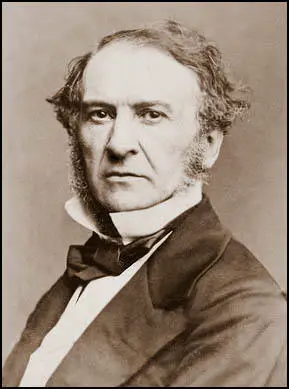
On this day in 1905 Marie Corelli publishes a letter in The Morning Post about the British Brothers' League. "The evils of overcrowding in London, as well as the large provincial cities, are steadily increasing, and it is hard to see why Great Britain should alone, out of all the countries in the world, be made a refuge for destitute foreigners. The size of the British Islands on the map, as compared with the rest of Europe, is so out of all proportion to the influx of alien population which annually floods our coasts, that this fact alone ought to be sufficient to press home to all reasoning and reasonable minds the necessity of enforcing legislation in such a way that a proper restriction may be set on the immigration of aliens to a country which has not sufficient room for the growth of its own people... Our first duty is to ourselves and the maintaining of our position with honour. British work, British wages and British homes should be among the first considerations of the British Government... I would suggest that committees of the British Brothers' League be formed in the large provincial cities, such as Birmingham, Leeds, Manchester, Sheffield, and Liverpool."
Major William Evans-Gordon was the main figure in the British Brothers' League, an organisation that now had 12,000 members. Evans-Gordon toured eastern Europe to study the Jewish immigration question, and wrote of his journey in his book The Alien Immigrant, published in 1903. It has been described as an "exhaustively researched and well-received treatise focused on the social political, and economic effects of the mass emigration of Eastern Europeans into Britain." (11) Evans-Gordon concluded his study with the words: "it is a fact that the settlement of large aggregations of Hebrews in a Christian land has never been successful".
Members of the recently formed Labour Party and Jewish trade unionists formed the Aliens Defence League to counteract the British Brothers' League. Evans-Gordon responded by forming a committee of MPs pledged to vote for restriction (the parliamentary pauper immigration committee) and this played an important part in forcing the government to establish a royal commission on alien immigration in 1902. As a member of the commission, Evans-Gordon was "the individual who dominated the whole investigation". Many of the witnesses called by the commission were organized by the BBL.
The commission's report was presented in August 1903 and recommended a range of measures to restrict immigration. It argued that: "Immigrants arrived impoverished, destitute and dirty; practised insanitary habits; spread infectious diseases; were a burden on the rates; dispossessed native dwellers; caused native tradesmen to suffer a loss of trade; worked for rates below the 'native workman'; included criminals, prostitutes and anarchists; formed a compact non-assimilating community, that didn't intermarry; and interfered with the observance of Christian Sunday."
After the publication of this report the government, under pressure from right-wing elements in the Conservative Party, and reactionary newspapers such as the Daily Mail, to do something about immigration controls. Eventually, Arthur Balfour, the prime minister, agreed to introduce an Aliens Act. Aside from anti-semitic sentiments, the act was also driven by the economic and social unrest in the East End of London where most immigrants settled. According to the government, the undercutting of British labour was therefore a central driving force to the passing of the legislation.
In a leading article on 11th December, 1903, The Jewish Chronicle protested that the proposed Alien Act really had nothing to do with the Jews, but was a protectionist measure intended to appease the working classes at a time of unemployment and so help to retain the seats of Conservative MPs. In the next few weeks the newspaper published several articles showing that immigration was declining and pressure on the housing market was easing.
The first attempt to pass the Alien Act in 1904 ended in failure. Howard Vincent, the president of the British Brothers League, complained that members of the Labour Party and the left-wing of the Liberal Party had blocked the measure: "To kill the bill by talk was the avowed object of the Radical obstructionists, and, thanks to them, Stepney and Whitechapel, Hoxton and Tower Hamlets, Poplar and Limehouse, Shoreditch and Bethnal Green, must continue for a while to suffer the evils of unrestricted alien immigration, driving the working-classes from employment and from home, and the townspeople into bankruptcy." However, Vincent claimed that Balfour had assured William Evans-Gordon and Samuel Forde Ridley, two members of the BBL, that he intended to try again to get the measure passed: ""From every point of view I think a measure dealing with the subject is of great importance, and no time shall be lost in making an effort, and I think a more successful effort, to grapple with its difficulties."
When the Alien Bill was introduced again in 1905 Balfour claimed that the measure would save money for the country. "Why should we admit into this country people likely to become a public charge? Many countries which exclude immigrants have no Poor Laws they have not those great charities of which we justly boast. The immigrant comes in at his own peril and perishes if he cannot find a living. That is not the case here. From the famous statute of Elizabeth we have taken on ourselves the obligation of supporting every man, woman, and child in this country and saving them from starvation. Is the statute of Elizabeth to have European extension? Are we to be bound to support every man, woman, and child incapable of supporting themselves who choose to come to our shores? That argument seems to me to be preposterous. When it is remembered that some of these persons are a most undesirable element in the population, and are not likely to produce the healthy children... but are afflicted with disease either of mind or of body, which makes them intrinsically undesirable citizens, surely the fact that they are likely to become a public charge is a double reason for keeping them out of the country."
William Evans-Gordon made a major speech on the proposed legislation: "I would remind the House that year by year some 1,500,000 of human beings of every age, sex, and religion, the healthy and hopeful, the diseased and hopeless, good, bad, and indifferent, are on the move from the South and East of Europe pressing towards the West. The expulsive forces which cause this great movement are in the main misgovernment and oppression. But other influences are at work. The enormous number of these people who have gone before make a drawing force to the people who are left behind, and this great travelling mass of humanity has produced among the shipping companies, and people connected with railways and other transport, a fierce competition. Every single person who can be induced to travel is another ticket sold. All these forces add naturally to the number of people who are on the move. This immigration is not by any means wholly Jewish. The Jewish emigrants do form a very large part of the whole, and in their case it may be said to take the form almost of a national migration. There are 5,500,000 Jews in the Russian Empire, but we cannot consider all these people to be possible emigrants, though a large number of them must be considered in that light, unless affairs in Eastern Europe undergo a profound modification. As things are, it is the poorest and the least fit of these people who move, and it is the residuum of these again who come to, or are left in this country."
He went on to argue that this was causing considerable problems, such as overcrowding and low wages, for the working-classes living in London. This view was attacked by Charles Trevelyan: "The truth is if it were only an economic question we on this side of the House should regard it as almost too insignificant a matter to oppose, although we think it useless protection, but there are two serious results which we foresee from this legislation. The first is that it diverts the attention of the public from more serious remedies for the deep-seated and terrible evils of overcrowding and sweating in our country. Overcrowding and sweating are national institutions which the aliens find when they come here. They want to be sweated and overcrowded as little as the native-born, but at first landing they are naturally more liable to suffer from the conditions of the towns in which they find themselves. Their overcrowding and sweating is only a part of a system from which our population suffers immensely more than the few aliens who come over here."
Stuart Samuel, the Liberal Party MP for Whitechapel, accused the government of proposing legislation that would stop Jews who were suffering from religious persecution from entering the country. "The Prime Minister... had laid it down that we were bound by out historical past to refuse admission to the victims of religious persecution upon the ground that to admit them would cost this country a certain sum of money. That sordid and unworthy argument he believed the people of this country would not approve of.... If the right hon. Gentleman thought that he represented the opinions of the people of this country, why did he not appeal to them in that case? The right hon. Gentleman knew perfectly well that up and down the country the people were in favour of religious freedom.... said that if they refused asylum in this country to the victims of religious persecution and threw them back into the country where they were religiously persecuted, they were participating in the wrong."
Balfour claimed that this legislation would help to protect the working-class from immigrants willing to accept lower-wages. This idea was completely rejected by Kier Hardie, the leader of the Labour Party: "The right hon. Gentleman (Arthur Balfour) replied that the Bill proposed to give protection to underpaid British labour against the competition of foreigners. At the present time the workman knew he had no such protection, but if this Bill became law he would relatively be worse off than he was now, because he would have a nominal protection. He would be more liable to competition under the Bill than he was now. Under the Bill no poor workman could come in unless he brought a contract of employment with him, and therefore the whole machinery would be set up for importing foreign workmen under a contract of employment, and it would be easier for the employers who wanted to obtain a gang of foreign workmen to obtain them. Consequently a British workman who was being threatened with a strike or a lock-out would find his position worse under the Bill than he did at present. The Government, had no right to so legislate as to give the employer an unfair advantage over his workman during a trade dispute."
Although the word "Jew" was absent from the legislation, Jews formed the vast bulk of the "aliens" category. Speaking during the committee stage of the Alien Bill, Balfour argued that Jews should be prevented from arriving in Britain because they were not "to the advantage of the civilisation of this country... that there should be an immense body of persons who, however patriotic, able and industrious, however much they threw themselves into the national life, they are a people apart and not only had a religion differing from the vast majority of their fellow countrymen but only intermarry amongst themselves."
The Liberal Party believed that the Alien Act was popular with the electorate and decided not to oppose the bill with any great effort. However, a couple of its more left-wing members, Charles Trevelyan and Charles Wentworth Dilke. All four Jewish MPs who represented the Conservative Party, including Benjamin Cohen and Harry Samuel, voted for the legislation. Of the four Jewish Liberals, one abstained and three voted against.
As Geoffrey Alderman, the author of Modern British Jewry (1998) has pointed out: "It was not at the Jewish Board of Deputies that the principle of the legislation was condemned, but at the Jewish Working Men's Club, Great Alie Street, Aldgate, and by the Jewish Socialist-Zionist party, Poale Zion... Chief Rabbi Adler was reluctant to condemn it... At the general election of January 1906, in at least one constituency (Leeds Central) Adler's influence was discreetly employed by the Conservative interest."
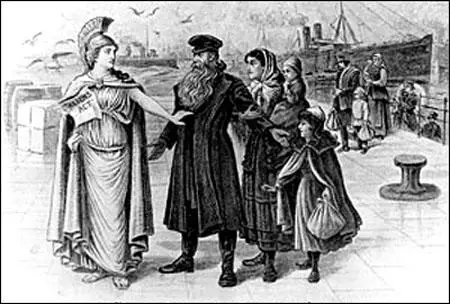
On this day in 1916 David Lloyd George makes speech in favour of conscription. "I have worked with him (Asquith) for ten years. I have served under him for eight years. If we had not worked harmoniously - and we have - let me tell you here at once that it would have been my fault and not his. I have never worked with anyone who could be more considerate... But we have had our differences. Good heavens, of what use would I have been if I had not differed from him? Freedom of speech is essential everywhere, but there is one place where it is vital, and that is in the Council Chamber of the nation. The councillor who professes to agree with everything that falls from the leader betrays him."
Lloyd George then went on to suggest that Asquith had reluctantly supported conscription, whereas to him, it was vitally important if Britain was going to win the war. "You must organise effort when a nation is in peril. You cannot run a war as you would run a Sunday school treat, where one man voluntarily brings the buns, another supplies the tea, one brings the kettle, one looks after the boiling, another takes round the tea-cups, some contribute in cash, and a good many lounge about and just make the best of what is going on. You cannot run a war like that." He said he was in favour of compulsory enlistment, in the same way as he was "for compulsory taxes or for compulsory education."
Lloyd George threatened to resign if H. H. Asquith did not introduce conscription. Eventually he gave in and the Military Service Bill was introduced by Asquith on 21st January 1916. John Simon, the Home Secretary, resigned and so did Arthur Henderson, who had represented the Labour Party in the coalition government. Alfred George Gardiner, the editor of the Daily News argued that Lloyd George was engineering the conscription crisis in order to substitute himself for Asquith as leader of the country."
The Military Service Act specified that single men between the ages of 18 and 41 were liable to be called-up for military service unless they were widowed with children or ministers of religion. Conscription started on 2nd March 1916. The act was extended to married men on 25th May 1916. The law went through several changes before the war's end with the age limit eventually being raised to 51.
Lord Northcliffe who owned the Daily Mail received a large number of threatening letters because of his compulsion campaign. Tom Clarke, who worked for Northcliffe, saw the contents of these letters, commented that one said: "Warning to Lord Northcliffe... If the compulsion Bill is passed you are a dead man. I and another half-dozen young men have made a pledge - that is, to shoot you like a dog. We know where to find you." (12)
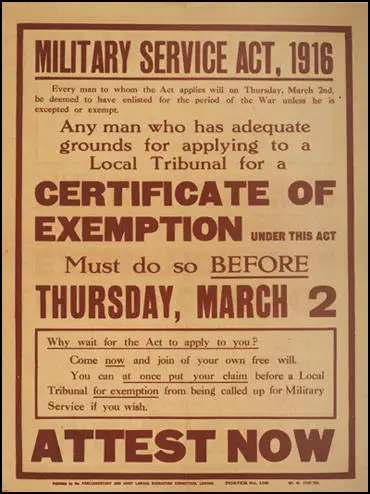
On this day in 1917 Edward T. Heald writes a letter to his wife about the arrival in Russia of Lenin. "The sudden burst of radical propaganda, which has developed during the past week, is attributed to a man named Lenin who has just arrived from Switzerland. He came through Germany, and rumour is that he was banqueted by Emperor Wilhelm. As he entered the country through Finland, he harangued the soldiers and workingmen along the way with the most revolutionary propaganda. One of the Americans who came through on the same train told us how disheartening it was. Lenin's first words when he got off the train at Petrograd were "Hail to the Civil war." God knows what a task the Provisional Government has on hand without adding the trouble that such a firebrand can create."
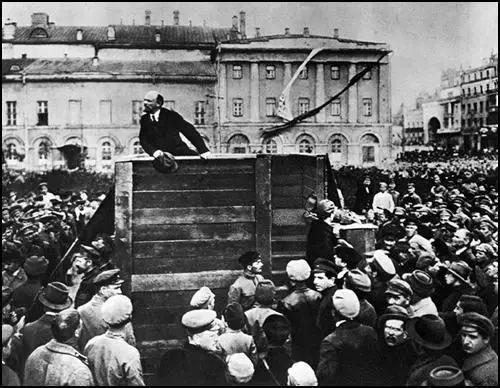
On this day in 1923 Lady Constance Georgina Bulwer-Lytton died at Knebworth House died.
Constance Lytton, the daughter of Robert Bulwer-Lytton, 1st Earl of Lytton and Edith Villiers, was born in Vienna on 18th January 1869. Lytton was the Viceroy of India and Constance spent the first eleven years of her life in India. Educated by a series of governesses she had a very lonely childhood.
In 1892 Constance fell in love with a man with lower social status than the Lytton family. Lord Lytton had died the previous year, but her mother refused to grant permission for her to marry this man. For several years she hoped her mother would change her mind, but this did not happen and Constance Lytton refused to contemplate marrying anyone else.
Constance Lytton's sister Betty Bulwer-Lytton, married Gerald Balfour, a keen supporter of the women's suffrage movement. So also were two of his sisters, Frances Balfour and Emily Lutyens. Constance found their ideas on women's political rights interesting but her preoccupation with her unhappy love affair and poor health stopped her joining the suffrage movement.
In 1906 Constance Lytton visited the Espérance Club, an organisation that had been established by Mary Neal and Emmeline Pethick-Lawrence. The club was influenced by the ideas of William Morris, Edward Carpenter, and Walt Whitman. The women were also involved in helping a group of young women establish a co-operative dressmaking business, Maison Espérance, in Wigmore Street.
Mary Neal and Emmeline Pethick-Lawrence were also active members of the Women's Social and Political Union (WSPU). At first she disagreed with their militant tactics. In a letter written on 8th September 1906 she told Adela Smith: "I met some suffragettes down at the club in Littlehampton… I had a long talk with Mrs. Pethick-Lawrence. She mostly talked Woman Suffrage, about which, though I sympathize with the cause, she left me unconverted as to my criticisms of some of their methods."
However, she was willing to help the women who had been imprisoned as a result of their actions: "They (the suffragettes) have come into personal first-hand contact with prison abuses. My hobby of prison reform has thereby taken on new vigour… I intend to interview the female inspector of Holloway prison, and will take part in the Suffragette breakfast with the next batch of released Suffrage prisoners on September 16." Emmeline Pethick-Lawrence also asked her to seek a meeting with Herbert Gladstone: " Could I see to it that Herbert Gladstone was asked to treat the Suffragettes as political offenders, which they are, and not as common criminals, which they are not?"
In November 1908 Constance Lytton told her aunt, Theresa Earle: "I go deeper and deeper in my enthusiasm to the women, and even for their tactics as I understand it more and more - not only what they do, but what has been done to them to drive them to these tactics." She was especially impressed with Annie Kenney, who was one of the WSPU's full-time organisers. Lytton later wrote in Prison and Prisoners (1914): "Women had tried repeatedly, and always in vain, every peaceable means open to them of influencing successive governments. Processions and petitions were absolutely useless. In January 1909 I decided to become a member of the Women's Social and Political Union."
Constance Lytton's decision to join the WSPU horrified her family. Her sister, Emily Lutyens, who was a supporter of the non-militant, National Union of Suffrage Societies, wrote to her aunt, Theresa Earle: "I must write you a line of deepest sympathy. I know how you must be suffering about Constance. We cannot disguise from ourselves that our old Constance has gone forever. I feel, whatever it may be in the future, for the moment she has passed out of the lives of her family. She has become an impersonal being, and no one will feel this so much as you."
On 24th February 1909, Constance took part in a demonstration at the House of Commons. Constance was arrested and imprisoned but when the authorities found out that she was the daughter of Lord Lytton, the former Viceroy of India, they ordered her release. As well as her social position, the British government were also aware of Constance Lytton's health problems, and they feared that if she went on hunger strike she would die and then the WSPU would have a famous martyr.
Lytton joined a group of suffragettes, including Jane Brailsford and Emily Wilding Davison, who resolved to undertake acts of violence in order to protest against forcible feeding. On 9th November 1909, she was arrested in Newcastle. She was sent to prison for 30 days. "Mrs. Brailsford, who had struck at the barricade with an axe, was also given the option of being bound over, which she, of course, refused, with the alternative of a month's imprisonment in the second division. We were put again into a van, but had only a short way to drive. We were shown into a passage of the prison where the Governor came and spoke to us. He was very civil, and begged us not to go on the hunger-strike." She did but as she pointed out in Prisons and Prisoners (1914) after a couple of days "the wardress came in and announced that I was released, because of the state of my heart!"
Constance Lytton was angry that she should be given special treatment and decided to adopt a false identity. After another demonstration Constance was arrested but this time she gave her name as Jane Wharton, a London seamstress. Constance was sentenced to fourteen days and when she refused to eat, she was forced fed eight times. When the authorities discovered Jane Wharton's true identity she was immediately released.
Colonel Linley Blathwayt was sympathetic to the WSPU cause and he built a summer-house in the grounds of his Batheaston estate that was called the "Suffragette Rest". Members of the WSPU who endured hunger strikes went to stay at Eagle House and the summer-house. In April 1910, Emily Blathwayt recorded in her diary: "Linley and Annie Kenney brought Mrs. Pethick-Lawrence and Lady Constance from the station in a taxi-cab in time for lunch and they went to the meeting in the same way... Lady Constance showed how she was first prejudiced against militant methods till gradually step by step she found she must go to prison herself. I suppose future generations will give honour to these noble people. When the cause becomes the fashion, we shall have the stupid people in it."
In April 1910, Colonel Linley Blathwayt decided to create a suffragette arboretum in a field adjacent to Eagle House. During that month Constance Lytton, Annie Kenney, Emmeline Pethick-Lawrence and Clara Codd, were all invited to tree planting ceremonies. On 22nd April, Constance planted a Cupressus Allumii in the suffragette arboretum.
On 12th June 1910 Lytton was appointed as a paid organizer of the WSPU with a salary of £2 a week, backdated six months. The salary enabled her to take a small flat, very close to that of Mary Neal, opposite Euston Station.
In November 1911 Constance Lytton was arrested for window-breaking but was released when it became clear that she was in danger of dying. Soon afterward Constance suffered a stroke which left her partly paralyzed. Now unable to take an active role in the suffragette struggle, Constance concentrated on writing articles and pamphlets on women's rights for the WSPU. Constance also wrote a book on her experiences in the suffragette movement called Prisons and Prisoners (1914).
When the WSPU ended their militant campaign in 1914, Lytton gave her support to Marie Stopes and her campaign to establish birth-control clinics. Lady Lytton totally disapproved of her daughter's political activities. However, she gave Constance the assistance she needed to write her books and nursed her daughter, who was now seriously ill.
Just before her death, Constance Lytton wrote to her aunt, Theresa Earle: "If it should happen… I am happy to die. If, as many people believe, we step into a higher life, but are again with loved companions who have died before, then it will be very good. Death to me is like a gentle lover…I am so tired of life, I should like to be taken in his sheltering arms and have an end… I have long hoped to die, and since I've seen this possible road, I have felt most wonderfully happy. Of late years I have seen and felt much of the sad side of death - the separation from those we love. Now I see the joyful side - the release from bodily ills - and it is restful beyond all words."
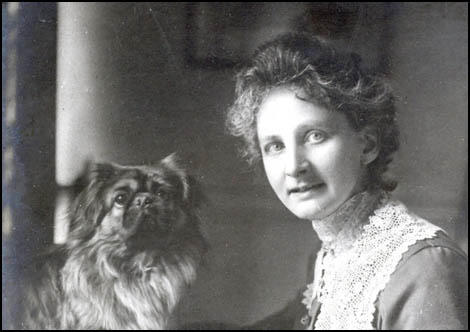
On this day in 1926 Stanley Baldwin calls of talks with the Trade Union Council and ensures the General Strike takes place. Baldwin and his ministers had several meetings with both sides in order to avoid the strike. Thomas Jones, the Deputy Secretary to the Cabinet, pointed out: "It is possible not to feel the contrast between the reception which Ministers give to a body of owners and a body of miners. Ministers are at ease at once with the former, they are friends jointly exploring a situation. There was hardly any indication of opposition or censure. It was rather a joint discussion of whether it was better to precipitate a strike or the unemployment which would result from continuing the present terms. The majority clearly wanted a strike."
Considering themselves in a position of strength, the Mining Association now issued new terms of employment. These new procedures included an extension of the seven-hour working day, district wage-agreements, and a reduction in the wages of all miners. Depending on a variety of factors, the wages would be cut by between 10% and 25%. The mine-owners announced that if the miners did not accept their new terms of employment then from the first day of May they would be locked out of the pits.
At the end of April 1926, the miners were locked out of the pits. A Conference of Trade Union Congress met on 1st May 1926, and afterwards announced that a General Strike "in defence of miners' wages and hours" was to begin two days later. The leaders of the Trade Union Council were unhappy about the proposed General Strike, and during the next two days frantic efforts were made to reach an agreement with the Conservative Government and the mine-owners.
Ramsay MacDonald, the leader of the Labour Party refused to support the General Strike. MacDonald argued that strikes should not be used as a political weapon and that the best way to obtain social reform was through parliamentary elections. He was especially critical of A. J. Cook. He wrote in his diary: "It really looks tonight as though there was to be a General Strike to save Mr. Cook's face... The election of this fool as miners' secretary looks as though it would be the most calamitous thing that ever happened to the T.U. movement."
The Trade Union Congress called the General Strike on the understanding that they would then take over the negotiations from the Miners' Federation. The main figure involved in an attempt to get an agreement was Jimmy Thomas. Talks went on until late on Sunday night, and according to Thomas, they were close to a successful deal when Stanley Baldwin broke off negotiations as a result of a dispute at the Daily Mail.
What had happened was that Thomas Marlowe, the editor the newspaper, had produced a provocative leading article, headed "For King and Country", which denounced the trade union movement as disloyal and unpatriotic.The workers in the machine room, had asked for the article to be changed, when he refused they stopped working. Although, George Isaacs, the union shop steward, tried to persuade the men to return to work, Marlowe took the opportunity to phone Baldwin about the situation.
The strike was unofficial and the TUC negotiators apologized for the printers' behaviour, but Stanley Baldwin refused to continue with the talks. "It is a direct challenge, and we cannot go on. I am grateful to you for all you have done, but these negotiations cannot continue. This is the end... The hotheads had succeeded in making it impossible for the more moderate people to proceed to try to reach an agreement." A letter was handed to the TUC negotiators that stated that the "gross interference with the freedom of the press" involved a "challenge to the constitutional rights and freedom of the nation".
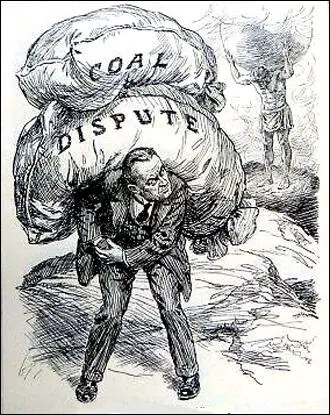
On this day in 1933 Germany's independent labour unions are replaced by the German Labour Front. A day earlier Adolf Hitler proclaimed May Day, 1933, as a national holiday and arranged to celebrate it as it had never been celebrated before. Trade union leaders were flown to Berlin from all parts of Germany. Joseph Goebbels staged the greatest mass demonstration Germany had ever seen. Hitler told the workers' delegates: "You will see how untrue and unjust is the statement that the revolution is directed against the German workers." Later that day Hitler told a meeting of more than 100,000 workers that "reestablishing social peace in the world of labour" would soon begin.
The next day, Hitler ordered the Sturm Abteilung (SA) to destroy the trade union movement. Their headquarters throughout the country were occupied, union funds confiscated, the unions dissolved and the leaders arrested. Large numbers were sent to concentration camps. Within a few days 169 different trade unions were under Nazi control.
Hitler gave Robert Ley the task of forming the German Labour Front (DAF). Ley, in his first proclamation, stated: "Workers! Your institutions are sacred to us National Socialists. I myself am a poor peasant's son and understand poverty... I know the exploitation of anonymous capitalism. Workers! I swear to you, we will not only keep everything that exists, we will build up the protection and the rights of the workers still further."
Three weeks later Hitler decreed a law bringing an end to collective bargaining and providing that henceforth "labour trustees", appointed by him, would "regulate labour contracts" and maintain "labour peace". Since the decisions of the trustees were to be legally binding, the law, in effect, outlawed strikes. Ley promised "to restore absolute leadership to the natural leader of a factory - that is, the employer... Only the employer can decide."
The German Labour Front was the only union organization allowed in the Third Reich and had over 20 million members. Ley appointed twelve state officials whose job it was to regulate wages, conditions of work and labour contracts in each of their respective districts, and to maintain peace between workers and employers. The DAF was "rendered totally docile and workers no longer had any voice in management".
The results of the elections to works councils suggest that the Labour Front representatives were not popular with the German workforce. As a result, no further elections were held after 1935. Some workers continued to resist fascism and in some sectors, such as metal and wood workers, railwaymen and seafarers maintained impressive illegal networks.
The German Labour Front deprived the workers of any bargaining mechanism. The employer, with the support of the Labour Front, was able to decide on the amount that the workforce were paid. A wage freeze was decreed in 1933 and was enforced by the Labour Front during the period that the Nazis were in power, despite rising costs of living. "The Labour Front had become a gigantic state prison from which workers had no way out."
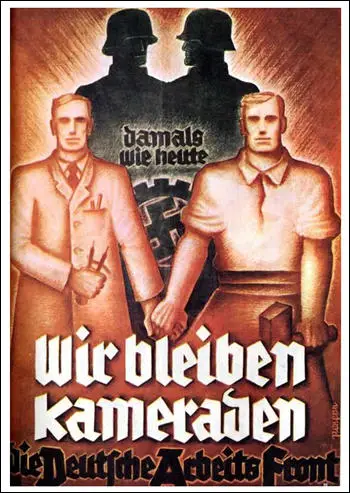
On this day in 1957 Joseph McCarthy died in the Bethesda Naval Hospital. McCarthy, who had been drinking heavily for many years, was discovered to have cirrhosis of the liver. An alcoholic, he was unable to take the advice of doctors and friends to stop drinking. As the newspapers reported, McCarthy had drunk himself to death.
On 20th February, 1950, McCarthy made a six hour speech on the Senate floor supporting the allegations he had made in Salt Lake City. This time he did not describe them as "card-carrying communists" because this had been shown to be untrue. Instead he argued that his list were all "loyalty risks". He also claimed that one of the president's speech-writers, was a communist. David Demarest Lloyd immediately issued a statement where he defended himself against McCarthy's charges. President Harry S. Truman not only kept him on but promoted him to the post of Administrative Assistant. Lloyd was indeed innocent of these claims and McCarthy was forced to withdraw these allegations. As Anderson admitted: "At my instigation, then, Lloyd had been done an injustice that was saved from being grevious only by Truman's steadfastness."
McCarthy also claimed that the Democratic administration had been infiltrated by communist subversives. McCarthy named four of these people, who had held left-wing views in their youth, but when Democrats accused McCarthy of smear tactics, he suggested they were part of this communist conspiracy. This claim was used against his critics who were up for re-election in 1950. Many of them lost and this made other Democrats reluctant to criticize McCarthy in case they became targets of his smear campaigns.
Drew Pearson immediately launched an attack on Joseph McCarthy. He pointed out that only three people on the list were State Department officials. When this list was first published four years ago, Gustavo Duran and Mary Jane Keeney had both resigned from the State Department in 1946. The third person, John S. Service, had been cleared after a prolonged and careful investigation. Pearson also pointed out that none of these people had been members of the American Communist Party. Jack Anderson asked Pearson to stop attacking McCarthy: "He is our best source on the Hill." Pearson replied, "He may be a good source, Jack, but he's a bad man."
With the war going badly in Korea and communist advances in Eastern Europe and in China, the American public were genuinely frightened about the possibilities of internal subversion. McCarthy, as chairman of the Government Committee on Operations of the Senate, was in an ideal position to exploit this situation.
For the next two years McCarthy investigated various government departments and questioned a large number of people about their political past. Some people lost their jobs after they admitted they had been members of the Communist Party. McCarthy made it clear to the witnesses that the only way of showing that they had abandoned their left-wing views was by naming other members of the party.
This witch-hunt and anti-communist hysteria became known as McCarthyism. Some left-wing artists and intellectuals were unwilling to live in this type of society and people such as Joseph Losey, Richard Wright, Ollie Harrington, James Baldwin, Herbert Biberman, Lester Cole and Chester Himes went to live and work in Europe.
McCarthyism was mainly used against Democrats associated with the New Deal policies introduced by Franklin D. Roosevelt in the 1930s. Harry S. Truman and members of his Democratic administration such as George Marshall and Dean Acheson, were accused of being soft on communism. Truman was portrayed as a dangerous liberal and McCarthy's campaign helped the Republican candidate, Dwight Eisenhower, win the presidential election in 1952.
After what had happened to McCarthy's opponents in the 1950 election, most politicians were unwilling to criticize him in the Senate. As The Boston Post pointed out: "Attacking him is this state is regarded as a certain method of committing suicide. One notable exception was William Benton, a senator from Connecticut and the owner of Encyclopaedia Britannica. McCarthy and his supporters immediately began smearing Benton. It was claimed that while Benton had been Assistant Secretary of State he had protected known communists and that he had been responsible for the purchase and display of "lewd art works". Benton, who was also accused of being disloyal by McCarthy for having much of his company's work printed in England, was defeated in the 1952 elections.
McCarthy informed Jack Anderson that he had evidence that Professor Owen Lattimore, director of the Walter Hines Page School of International Relations at Johns Hopkins University, was a Soviet spy. Drew Pearson, who knew Lattimore, and while accepting he held left-wing views, he was convinced he was not a spy. In his speeches, McCarthy referred to Lattimore as "Mr X... the top Russian spy... the key man in a Russian espionage ring."
On 26th March, 1950, Pearson named Lattimore as McCarthy's Mr. X. Pearson then went onto defend Lattimore against these charges. McCarthy responded by making a speech in Congress where he admitted: "I fear that in the case of Lattimore I may have perhaps placed too much stress on the question of whether he is a paid espionage agent."
McCarthy then produced Louis Budenz, the former editor of The Daily Worker. Budenz claimed that Lattimore was a "concealed communist". However, as Anderson admitted: "Budenz had never met Lattimore; he spoke not from personal observation of him but from what he remembered of what others had told him five, six, seven and thirteen years before."
Drew Pearson now wrote an article where he showed that Budenz was a serial liar: "Apologists for Budenz minimize this on the ground that Budenz has now reformed. Nevertheless, untruthful statements made regarding his past and refusal to answer questions have a bearing on Budenz's credibility." He went on to point out that "all in all, Budenz refused to answer 23 questions on the ground of self-incrimination".
Owen Lattimore was eventually cleared of the charge that he was a Soviet spy or a secret member of the American Communist Party and like other victims of McCarthyism, he went to live in Europe and for several years was professor of Chinese studies at Leeds University.
Despite the efforts of Jack Anderson, by the end of June, 1950, Drew Pearson had written more than forty daily columns and a significant percentage of his weekly radio broadcasts, that had been devoted to discrediting the charges made by Joseph McCarthy.
Joe McCarthy now told Anderson: "Jack, I'm going to have to go after your boss. I mean, no holds barred. I figure I've already lost his supporters; by going after him, I can pick up his enemies." McCarthy, when drunk, told Assistant Attorney General Joe Keenan, that he was considering "bumping Pearson off".
On 15th December, 1950, McCarthy made a speech in Congress where he claimed that Pearson was "the voice of international Communism" and "a Moscow-directed character assassin." McCarthy added that Pearson was "a prostitute of journalism" and that Pearson "and the Communist Party murdered James Forrestal in just as cold blood as though they had machine-gunned him."
Over the next two months McCarthy made seven Senate speeches on Drew Pearson. He called for a "patriotic boycott" of his radio show and as a result, Adam Hats, withdrew as Pearson's radio sponsor. Although he was able to make a series of short-term arrangements, Pearson was never again able to find a permanent sponsor. Twelve newspapers cancelled their contract with Pearson.
McCarthy and his friends also raised money to help Fred Napoleon Howser, the Attorney General of California, to sue Pearson for $350,000. This involved an incident in 1948 when Pearson accused Howser of consorting with mobsters and of taking a bribe from gambling interests. Help was also given to Father Charles Coughlin, who sued Pearson for $225,000. However, in 1951 the courts ruled that Pearson had not libeled either Howser or Coughlin.
Only the St. Louis Star-Times defended Pearson. As its editorial pointed out: "If Joseph McCarthy can silence a critic named Drew Pearson, simply by smearing him with the brush of Communist association, he can silence any other critic." However, Pearson did get the support of J. William Fulbright, Wayne Morse, Clinton Anderson, William Benton and Thomas Hennings in the Senate.
In 1952 McCarthy appointed Roy Cohn as the chief counsel to the Government Committee on Operations of the Senate. Cohn had been recommended by J. Edgar Hoover, who had been impressed by his involvement in the prosecution of Julius Rosenberg and Ethel Rosenberg. Soon after Cohn was appointed, he recruited his best friend, David Schine, to become his chief consultant.
McCarthy's next target was what he believed were anti-American books in libraries. His researchers looked into the Overseas Library Program and discovered 30,000 books by "communists, pro-communists, former communists and anti anti-communists." After the publication of this list, these books were removed from the library shelves.
For some time opponents of McCarthy had been accumulating evidence concerning his homosexual activities. Several members of his staff, including Roy Cohn and David Schine, were also suspected of having a sexual relationship. Although well-known by political journalists, the first article about it did not appear until Hank Greenspun published an article in the Las Vegas Sun in 25th October, 1952. Greenspun wrote that: "It is common talk among homosexuals in Milwaukee who rendezvous in the White Horse Inn that Senator Joe McCarthy has often engaged in homosexual activities."
Joseph McCarthy considered a libel suit against Greenspun but decided against it when he was told by his lawyers that if the case went ahead he would have to take the witness stand and answer questions about his sexuality. In an attempt to stop the rumours circulating, McCarthy married his secretary, Jeannie Kerr. Later the couple adopted a five-week old girl from the New York Foundling Home.
In October, 1953, McCarthy began investigating communist infiltration into the military. Attempts were made by McCarthy to discredit Robert Stevens, the Secretary of the Army. The president, Dwight Eisenhower, was furious and now realised that it was time to bring an end to McCarthy's activities. The United States Army now passed information about McCarthy to journalists who were known to be opposed to him. This included the news that McCarthy and Roy Cohn had abused congressional privilege by trying to prevent David Schine from being drafted. When that failed, it was claimed that Cohn tried to pressurize the Army into granting Schine special privileges. Drew Pearson, published the story on 15th December, 1953.
Some figures in the media, such as writers George Seldes and I. F. Stone, and cartoonists, Herb Block and Daniel Fitzpatrick, had fought a long campaign against McCarthy. Other figures in the media, who had for a long time been opposed to McCarthyism, but were frightened to speak out, now began to get the confidence to join the counter-attack. Edward Murrow, the experienced broadcaster, used his television programme, See It Now, on 9th March, 1954, to criticize McCarthy's methods. Newspaper columnists such as Walter Lippmann also became more open in their attacks on McCarthy.
The senate investigations into the United States Army were televised and this helped to expose the tactics of Joseph McCarthy. One newspaper, the Louisville Courier-Journal, reported that: "In this long, degrading travesty of the democratic process, McCarthy has shown himself to be evil and unmatched in malice." Leading politicians in both parties, had been embarrassed by McCarthy's performance and on 2nd December, 1954, a censure motion condemned his conduct by 67 votes to 22.
Raymond Gram Swing, who had been forced to resign from the Voice of America because of McCarthy, argued in his autobiography, Good Evening (1964) that this did not mark the end of McCarthyism: "I am more than a little disquieted that McCarthy's condemnation by the Senate and his subsequent death have satisfied so many people that McCarthyism is over. For one thing, I consider that the condemnation by the Senate has given unwarranted satisfaction. It was based on an altogether peculiar sense of the importance of secondary matters. I am profoundly grateful that the committee went as far as it did. But I feel that it left out of account in its condemnation most of what Senator McCarthy had injuriously done. It ignored his roughshod disregard of civil rights and his irrepressible mendacity, and the fact that they existed while he was acting with the authority of the Senate. These transgressions were not specifically and helpfully rebuked at the time or ever. American principles and ethics were not strengthened by the Senate resolution of condemnation. The nation did not become healthier through it. It simply was rid of a menace because some Senate conservatives realized that their dignity was being sullied."
McCarthy now lost the chairmanship of the Government Committee on Operations of the Senate. He was now without a power base and the media lost interest in his claims of a communist conspiracy. As one journalist, Willard A. Edwards, pointed out: "Most reporters just refused to file McCarthy stories. And most papers would not have printed them anyway."
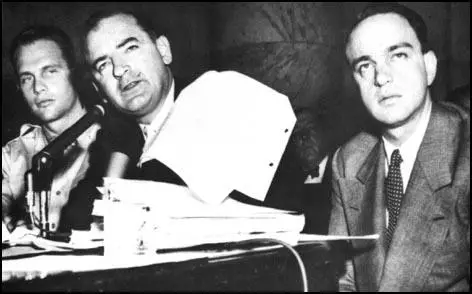
On this day in 1964 the first woman from the Conservative Party to become a member of the House of Commons, Nancy Astor died.
Her husband, Waldorf Astor represented the Sutton division of Plymouth in the House of Commons. On the death of his father in 1919, Astor became a member of the House of Lords. Nancy now became the party's candidate in the resulting by-election. Oswald Mosley was one of those who campaigned for her in the election: "She was less shy than any woman - or any man - one has ever known. She'd address the audience and then she'd go across to some old woman scowling in a neighbouring doorway, who simply hated her, take both her hands and kiss her on the cheek or something of that sort. She was absolutely unabashed by any situation. Great effrontery but also, of course, enormous charm. People were usually overcome by it. She was much better when she was interrupted. She must have prayed for hecklers and interrupters. She certainly got a lot."
Nancy Astor beat the Liberal Party candidate, Isaac Foot, and on 1st December 1919 became the first woman to take her seat in the House of Commons (the first woman to be elected was Constance Markievicz in 1918 but as a member of Sinn Fein had disqualified herself by refusing to take the oath). Markievicz, like many feminists, was highly critical that a woman who had not been part of the suffrage campaign had been elected to parliament. She accused her being a member of the "upper classes" and "out of touch" with the needs of ordinary people. Norah Dacre Fox, one of the leaders of the Women's Social and Political Union pointed out: "the first woman to be elected for an English constituency was an American born citizen, who had no credentials to represent British women in their own parliament save that she had married a British subject." Rachel Strachey said she was "lamentably ignorant of everything she ought to know".
Astor's maiden speech was in favour of the Temperance Society and in 1923 she introduced a private member's bill that raised to eighteen the age qualification for the purchase of alcoholic drinks. Astor worked closely with Margaret Wintringham, the second woman to be elected to the House of Commons. In a speech in July 1923 she argued: "In 1920 nearly 2,000 persons were cautioned by these women police for acts of indecency in parks and public places. There were nearly 3,000 persons cautioned for unseemly behaviour in parks, and 2,700 young girls were cautioned for loitering in the streets, and advised as to the danger of doing so; 1,000 girls passed into homes and hospitals, and 6,400 respectable girls and women stranded at night were found shelter. We had the evidence of Sir Nevil Macready, Sir Leonard Dunning, and chief constables and social workers, and the Committee unanimously reported that in thickly populated areas, where offences against the law relating to women and children are not infrequent, there was not only scope, but urgent need, for the employment of women police, and they also said that the women should be specially qualified, highly trained and well paid."
According to Martin Pugh: "She campaigned for many women's issues including the provision of nursery schools, widows' pensions, equal employment, women police, and measures to reduce the maternal mortality rates. She strongly supported the Association for Moral and Social Hygiene which campaigned to raise the age of consent to eighteen, and in 1925 she introduced a bill designed to repeal the law on prostitution and soliciting so as to put men and women on an equal footing. On the other hand, she opposed legislation for equal rights in divorce in 1922, and found the movement to extend information on birth control to married women very embarrassing; she regarded birth control in Victorian terms as almost calculated to lower women to men's standards."
In the 1930s Nancy Astor and her husband, Waldorf Astor held regular weekend parties at their home Cliveden, a large estate in Buckinghamshire on the River Thames. Those who attended included Philip Henry Kerr (11th Marquess of Lothian), Edward Wood (1st Earl of Halifax), Geoffrey Dawson, Samuel Hoare, Lionel Curtis, Nevile Henderson, Robert Brand and Edward Algernon Fitzroy. Most members of the group were supporters of a close relationship with Adolf Hitler and Nazi Germany. The group included several influential people. Astor owned The Observer, Dawson was editor of The Times, Hoare was Secretary of State for Foreign Affairs, Lord Halifax was a minister of the government who would later become foreign secretary and Fitzroy was Speaker of the Commons.
Norman Rose, the author of The Cliveden Set (2000): "Lothian, Dawson, Brand, Curtis and the Astors - formed a close-knit band, on intimate terms with each other for most of their adult life. Here indeed was a consortium of like-minded people, actively engaged in public life, close to the inner circles of power, intimate with Cabinet ministers, and who met periodically at Cliveden or at 4 St James Square (or occasionally at other venues). Nor can there be any doubt that, broadly speaking, they supported - with one notable exception - the government's attempts to reach an agreement with Hitler's Germany, or that their opinions, propagated with vigour, were condemned by many as embarrassingly pro-German."
On 17th June, 1936, Claude Cockburn, produced an article called "The Best People's Front" in his anti-fascist newsletter, The Week. He argued that a group that he called the Astor network, were having a strong influence over the foreign policies of the British government. He pointed out that members of this group controlled The Times and The Observer and had attained an "extraordinary position of concentrated power" and had become "one of the most important supports of German influence".
During the weekend of 23rd October 1937, the Astors had thirty people to lunch. This included Geoffrey Dawson (editor of The Times), Nevile Henderson (the recently appointed Ambassador to Berlin), Edward Algernon Fitzroy (Speaker of the Commons), Sir Alexander Cadogan (soon to replace the anti-appeasement Robert Vansittart as Permanent Under-Secretary at the Foreign Office), Lord Lothian and Lionel Curtis. They were happy that Neville Chamberlain, a strong supporter of appeasement was now Prime Minister and that this would soon mean promotion for people such as Lothian and Lord Halifax.
According to Norman Rose, Lord Lothian gave a talk on future relations with Adolf Hitler. "He wished to define what Britain would not fight for. Certainly not for the League of Nations, a broken vessel; nor to honour the obligations of others. As he had explained to the Nazi leaders, 'Britain had no primary interests in eastern Europe,' areas that fell within 'Germany's sphere'. To be dragged into a conflict not of Britain's making and not in defence of its vital interests would bedevil relations with the Dominions, fatal for the unity of the Empire. For the Clivedenites, this was always the bottom line... In effect, Lothian was prepared to turn central and eastern Europe over to Germany." Nancy Astor supported Lothian: "In twenty years I've never known Philip to be wrong on foreign politics." Geoffrey Dawson also agreed with Lothian and this was reflected in an editorial in The Times that he wrote a few days later. Lionel Curtis was the only member of this group that had doubts about Lothian's plans.
In November, 1937, Neville Chamberlain sent Lord Halifax in secret to meet Adolf Hitler, Joseph Goebbels and Hermann Goering in Germany. In his diary, Lord Halifax records how he told Hitler: "Although there was much in the Nazi system that profoundly offended British opinion, I was not blind to what he (Hitler) had done for Germany, and to the achievement from his point of view of keeping Communism out of his country." This was a reference to the fact that Hitler had banned the Communist Party (KPD) in Germany and placed its leaders in Concentration Camps. Halifax had told Hitler: "On all these matters (Danzig, Austria, Czechoslovakia)..." the British government "were not necessarily concerned to stand for the status quo as today... If reasonable settlements could be reached with... those primarily concerned we certainly had no desire to block."
The story was leaked to the journalist Vladimir Poliakoff. On 13th November 1937 the Evening Standard reported the likely deal between the two countries: "Hitler is ready, if he receives the slightest encouragement, to offer to Great Britain a ten-year truce in the colonial issue... In return... Hitler would expect the British Government to leave him a free hand in Central Europe". On 17th November, Claude Cockburn reported in The Week, that the deal had been first moulded "into usable diplomatic shape" at Cliveden that for years has "exercised so powerful an influence on the course of British policy." He later added that Lord Halifax was "the representative of Cliveden and Printing House Square rather than of more official quarters."
The term Cliveden Set was first used by the Reynolds News on 28th November, 1937, in an article that argued that the group were highly sympathetic to fascism. David Low, had a cartoon published in the Evening Standard, showing James Garvin, Nancy Astor, Philip Henry Kerr and Geoffrey Dawson, holding high the slogan "Any Sort of Peace at Any Sort of Price". This cartoon inspired the Communist Party of Great Britain to produce a pantomime entitled Babes in the Wood - the Panto with a Political Point at the at the Unity Theatre.
The Reynolds News claimed that Prime Minister Neville Chamberlain was "in protective custody at Cliveden". The Manchester Guardian, The Daily Chronicle and The Tribune reported the story in similar fashion. When Anthony Eden resigned as Foreign Secretary on 25th February, 1938, and replaced by Lord Halifax, left-wing newspapers argued that the "appeasement coup" had been organised by the The Cliveden Set.
The story spread to the United States. Louise Waterman Wise, the President of the American Jewish Congress wrote to Nancy Astor complaining about the activities of the Cliveden Set: "If Jews in America are against Nazi Germany, it is because they conceive it to be their duty as Americans to battle for civilization and humanity and therefore to stand against the crimes of Hitlerism... to render their country the service of making it aware of that monstrous iniquity - imperiling all that men hold dear in the political and spiritual world - of Nazism or Hitlerism." Felix Frankfurter wrote to her arguing that "anti-Semitism is an essential aspect of Nazism" and to persist in this vein would lead people to "infer a sympathy on your part with Hitler's anti-Semitism."
Lady Astor became convinced that she was becoming a victim of "Jewish Communistic propaganda". In the House of Commons on 28th February 1938, Harold Nicolson heard Alan Graham, the Conservative Party MP for Wirral, say to Astor: "I do not think you behaved very well." She turned upon him and said, "Only a Jew like you would dare to be rude to me." This incident was reported in the newspapers and The Daily Chronicle commented that Astor's "emotions about the Jews" had overcome "her sense of fitness". Friends recalled an incident at a dinner party when she introduced Chaim Weizmann as "the only decent Jew I have ever met."
Martin Pugh, the biographer of Nancy Astor, has argued: "Nancy's reputation suffered irretrievable damage. Cockburn targeted the Astors as an example of very wealthy people who used their connections and their newspapers to subvert the policy of the government. He linked them to appeasement on the basis that they were keen to use Hitler as a bulwark against Bolshevism. Like many people at that time Waldorf and Nancy were appeasers in the sense that they believed that Germany had been treated harshly by the treaty of Versailles; she also had connections with influential people such as Philip Kerr who was active as an emissary to Hitler."
Lady Astor turned against Neville Chamberlain after the outbreak of the Second World War and she joined the Conservative rebels in forcing him from office in May 1940, and throughout the war she devoted much of their time to raising morale in Plymouth, where Waldorf Astor served as mayor for five years. Plymouth became a major target of attack and the Astors' house suffered damage from incendiary bombs.
Despite her work in the war the people of Plymouth had not forgotten her pro-appeasement views in the 1930s and she was warned that she was likely to defeated if she contested the 1945 General Election. She stood down and Lucy Middleton, the Labour Party candidate, was elected for the constituency of Plymouth Sutton. The seat was won back for the Conservative Party by her son, John Astor.
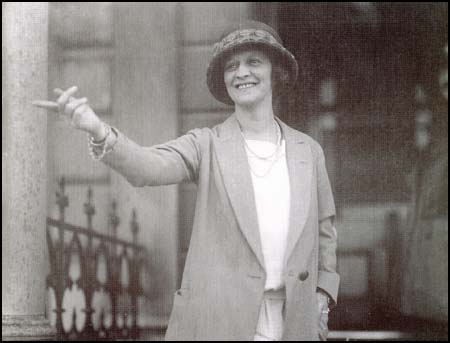
On this day in 1967 Huey Newton makes an important statement of the Black Panther Party.
The Black Panther Party for Self-Defense calls upon the American people in general and the black people in particular to take careful note of the racist California Legislature which is now considering legislation aimed at keeping the black people disarmed and powerless at the very same time that racist police agencies throughout the country are intensifying the terror, brutality, murder, and repression of black people.
At the same time that the American government is waging a racist war of genocide in Vietnam, the concentration camps in which Japanese Americans were interned during World War II are being renovated and expanded. Since America has historically reserved the most barbaric treatment for non-white people, we are forced to conclude that these concentration camps are being prepared for black people who are determined to gain their freedom by any means necessary. The enslavement of black people from the very beginning of this country, the genocide practiced on the American Indians and the confining of the survivors on reservations, the savage lynching of thousands of black men and women, the dropping of atomic bombs on Hiroshima and Nagasaki, and now the cowardly massacre in Vietnam, all testify to the fact that toward people of color the racist power structure of America has but one policy: repression, genocide, terror, and the big stick.
Black people have begged, prayed, petitioned, demonstrated, and everything else to get the racist power structure of America to right the wrongs which have historically been perpetrated against black people. All of these efforts have been answered by more repression, deceit, and hypocrisy. As the aggression of the racist American government escalates in Vietnam, the police agencies of America escalate the repression of black people throughout the ghettoes of America. Vicious police dogs, cattle prods, and increased patrols have become familiar sights in black communities. City Hall turns a deaf ear to the pleas of black people for relief from this increasing terror.
The Black Panther Party for Self-defense believes that the time has come for black people to arm themselves against this terror before it is too late. The pending Mulford Act brings the hour of doom one step nearer. A people who have suffered so much for so long at the hands of a racist society, must draw the line somewhere. We believe that the black communities of America must rise up as one man to halt the progression of a trend that leads inevitably to their total destruction.
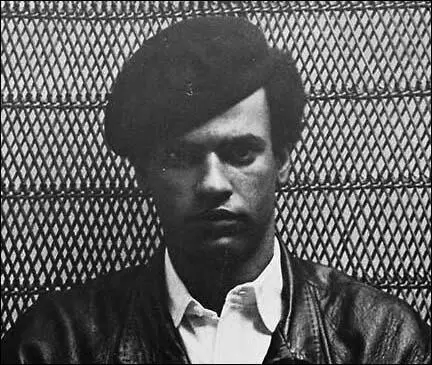
On this day in 1972 Earl Felton commits suicide in Studio City, California. Earl Felton was born on 16th October 1909. As a child he developed polio. He refused to use a wheelchair and learned to get around using crutches. He later confessed that his mother took him to revival meetings in search of a cure for his polio: "Dragging myself up to the pulpit was embarrassing enough. It was the crawling back down the aisle that was so humiliating."
Felton moved to Hollywood where he became a screenwriter. His first produced screenplay was Freshman Love (1936). This was followed by Bengal Tiger (1936), Bad Guy (1937), Prison Nurse (1938), The Night Hawk (1938), Orphans of the Street (1938), Society Smugglers (1939), Smuggled Cargo (1939), Calling All Marines (1939), The Lone Wolf Keeps a Date (1940), The Lone Wolf Takes a Chance (1941), World Premiere (1941), The Pittsburgh Kid (1941), Sierra Sue (1941), Sunset Serenade (1942), Heart of the Golden West (1942), My Best Gal (1944), Pardon My Past (1945), Criminal Court (1946), Angel on the Amazon (1948), The Beautiful Blonde from Bashful Bend (1949), Trapped (1949), Armored Car Robbery (1950), The Las Vegas Story (1952), The Narrow Margin (1952), The Happy Time (1952), 20000 Leagues Under the Sea (1954), The Marauders (1955), The Rawhide Years (1955), The Pride and the Passion (1957) and Killers of Kilimanjaro (1959).
In 1962 a FBI memo written by J. Edgar Hoover stated that Felton had taken part in sex orgies that involved Christine Keeler, Mandy Rice-Davies, Mariella Novotny, Douglas Fairbanks, Lord Astor, Eugene Ivanov, John Profumo and Stephen Ward.
In her autobiography, The Truth at Last (2001) Christine Keeler claimed that Felton was working for the CIA and the day after the News of the World published her story about how Eugene Ivanov had asked her to get information about nuclear weapons from John Profumo, Felton contacted her and suggested she leave the country. Keeler also claimed that Stephen Ward was providing "confidential information" to Felton.
